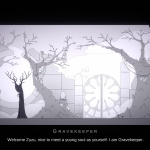In May 2004, Mrs. HM and I went on a whistle-stop tour of Kyushu, the big southwestern chunk of Japan, home to Nagasaki, the steamy onsen town of Beppu and the slightly surreal Dutch theme park Huis Ten Bosch. It was one part honeymoon, two parts sayonara as we were soon to depart Japan for a new life in the UK. The final destination of this tour was the island of Yakushima, a verdant fist of volcanic rock punching out of the water around 70km off the southern coast of Kyushu. It’s reputed to be the inspiration for Hayao Miyazaki’s Princess Mononoke.
We had two days on Yakushima. On the first day we did a circuit of the island by car, leaving us with memories of lazy monkeys pottering about on the road and magnificent waterfalls at every turn. On the second day, we went to see a tree.
The tree in question was Jomon Sugi, located near the centre of the island and at least 2,000 years old. It is visited by hundreds of hikers every day.
Let me describe the normal route taken to reach Jomon Sugi. First, you have to take an early bus – we had to catch one at 5.40am – which delivers you to the Arakawa Trail around 6.30am. The trail follows a little-used railway which is largely flat and easy to follow. Three hours later, hikers will reach the Okabu Trail which, to feet lulled into a false sense of horizontal security by the Arakawa rail track, looks like it lurches upward at a right-angle to the ground. Following this trail for another two hours will lead you to Jomon Sugi.
Now I hadn’t thought this thing through at all and our muscles were totally unprepared for the climb. Once we reached Jomon Sugi, we took a few pictures and then had to head back straight away. No time to dawdle: there was only one bus back in the evening! But after stubbing my toe several times in ill-fitting boots, the downward journey was agony, each footstep reverberating in pain. While Mrs. HM and I were great enthusiasts of long, urban walks, we had never put ourselves through a challenge like this before. Mrs. HM was in so much pain during the night she had difficulty sleeping. The following day we could only move around like Lego figures.
But our new wedding bands had accompanied us on the entire journey and suffered. Scrambling over rocks and grappling trees on the Okabu trail had scratched and scuffed the rings. I couldn’t help but think of some friends of ours who wore cheaper simulacra instead of their real wedding rings, to protect them from harm. Mrs. HM suggested we could get our rings polished and return them to their original, glistening state.
I said no.
In those marks I saw evidence of our climb together. Over the coming years, the rings would acquire more scratches and pits, each mark representing an event we had shared together. These tarnished rings would not merely become a historical record but also a metaphor for changing lives. People and relationships are not set in stone: they evolve and adapt. To keep the rings as they were would be a lie, trying to freeze ourselves in the past instead of owning up to who we would become.
I look back at this moment and now see the beginnings of a broader philosophy of life.
Embracing change and failure is a lot tougher than blabbering the soundbite. The transition from blank slate youth to curmudgeon is part of the human condition; we all acquire some sort of “not like the good old days” spiel:
- Consolisation has dumbed down gaming difficulty.
- I remember when documentaries were documentaries and not bloody “docudramas”.
- These “art games” aren’t games.
- I miss the days when a man could come home and expect dinner on the table.
- Today’s youth is Generation Entitlement, all X Factor and electronic now now devices.
Let go. Accept. Adapt. I have my moments of weakness but I’m always trying to chart a path forwards, weighing up what experiences or ideas can be rescued and appropriated for the future, and what ones I have to let go of. And here’s the thing I’ve been leading to: it has changed how I play games.
Contrary to what might have been interpreted from The Consequences of Consequences – which was meant as a warning for developers – I’m a consequence junkie. Actions have more meaning if you lose the ability to undo them. And you know what? You have the power to enforce that.
If you lament the lack of consequences in games, well, you don’t have to reload that last save. You don’t have to explore every nook and cranny and dialogue tree. No one is forcing you to play super-optimally.
Years ago, I pleaded with Mrs. HM to play through Max Payne with an emphasis on fun rather than optimal play. Max Payne is about diving into a cloud of bullets in slow motion and accepting the mistakes you make. Counting ammo and trying to snipe around corners ruins the joy of it.
Then there’s Armageddon Empires. If I make a mistake and let the enemy AI take out an important unit, I roll with it and carry on. If I am defeated, the game is over and I start again. I later discovered Armageddon Empires has an “Iron Man” mode which automatically saves after every turn, preventing the player from turning back the clock and undoing mistakes: shit, that’s how I normally play.
And I got Cart Life quickly. The depth of the Cart Life world with its deliberate scarcity of instruction sat on a particular sweet spot I could appreciate. It wanted me to learn and make mistakes like the characters in the game would. I got it right away. When I read responses to Cart Life that contain phrases like “I needed to start several times before I got the hang of it” I want to beat my chest and yell about how wrong that is. You’re supposed to fail! It is in the failing that the game’s meaning is found.
If you can retain your scratches and scars from one scene to the next, then play transforms into something that feels more real and a little more dangerous. This is why there is experimentation with permadeath and hardcore checkpointing – Dark Souls, anyone? But the obsession with “death” is a cliché and misses the point. It’s about living with error and being human.
Remember, you don’t have to use the tools you are offered. That option to reload a game is a choice.
Download my FREE eBook on the collapse of indie game prices an accessible and comprehensive explanation of what has happened to the market.
Sign up for the monthly Electron Dance Newsletter and follow on Twitter!












Nobody reloads from saves in a multiplayer game.
Although in boardgames, sometimes people take things back. Varies between groups how much this is frowned upon. Strictly forbidden in tournaments of course. But in more casual games it’s nice to be nice and accept that people get distracted when it’s not their turn, forget rules, miss something a card said, count things up wrong.. My rule of thumb is: as long as no hidden information has been revealed that could affect a decision, it’s not set in stone.
Another excellent piece dear HM. I do agree and actually have at times made cases even against the deth-like and sanitized preservation of buildings and even the notion of the monument, but you’ll have to agree that modern mainstream games have always been on a downward spiral. Just like mainstream literature, movies and anything guided by the greed and ignorance of managers and investors.
Interesting topic that seems to have been dragged up a lot, it sounds to me like I need to lend you my US PS2 and a copy of Way of the Samurai 2 then see how you get along with that.
Certainly I don’t have to use the extra save slots in things like Dead Rising 2, but it angered me that they were there at all. I just finished Dead Rising: Case West, a download title meant as an epilogue to Dead Rising 2, one that seems to have addressed even more people’s complaints about the game. To the point where the game is flat and bland. I finished it with the ‘best’ ending on my first go and have no desire to go back. How do I fix that, tell me HM, how do I fix that?
A fine fine piece, as always HM. The life philosophy you developed as a result of that hike provides insight that more people would do well to have. With gaming – and everything – we all do tend to look back and remember the grass as greener. I’m not sure I can agree with Gnome’s earlier comment about mainstream games always being on a downward spiral. It does seem that way; often in fact. But in truth I think they just are what they are.
@Brog – Yes, there are plenty of exceptions to what I’ve said above. Multiplayer is one. There are also singleplayer games which are about constant iteration (VVVVVV, Super Meat Boy) and others where consequences aren’t so obvious (shooters, “score” is about the size of the consequences here). It’s interesting that you raise the point that in some multiplayer board games, people might occasionally allow moves to be undone. Certainly my Dad allowed me to do this all the time when we played Chess and I was of single-digit age =) (I’m yet again sorry I have not returned to Vertex Dispenser but I did have a play with a number of your very weird aborted projects you made available recently.)
@Gnome – Heh, I didn’t want to get too bogged down in what things fall into the bucket of “grumpy old man” and into the alternative bucket of “this thing is important”. Like online privacy, for example. But the idea of saving buildings is a very, very interesting one, because I’m torn on it. Saving our heritage is important – but we can’t save everything for future posterity, because the future has to be “the future”. At what point does conservation cross over into a pollution of progress?
On mainstream games: I’m not entirely sure, I don’t have a particular opinion although I am cynical. While there’s plenty of humdrum crappy FPS lookalikes, there’s always big $$$ Portal, Uncharted or Mass Effect projects to even the scales a little. But I’d wager there’s far more risk-aversion and thus less innovation taking place (formula-tweaking, really) as mainstream budgets have inflated like footballers’ salaries.
@Steerpike – Thanks! I was a bit nervous posting this, because it’s easy to come across like “hey you old people, embrace change like ME!” which is exactly the kind of thing that pisses me off. It’s a fine line… the important thing is just to be conscious of it. An earlier version of the article threw in gay marriage as an example.
@BC – When I wrote this, I felt like you were peering over my shoulder. Almost definitely, Mr. Badger Commander was going to reply to this one. I will use saves as fallbacks when a game really does get hard and I’m dying again and again: this is along the lines of “The Consequences of Consequences” argument, using saves to debug the difficulty. Mafia was checkpointed and I found myself dying repeatedly in that game; the checkpoints seemed bloody awful in places. Of course, saves are also used to mark progress between play sessions.
I can’t tell you how to fix Case West, BC. Sometimes if it’s too easy, it’s too easy. Try playing with the controller upside down or randomly shocking yourself during the game. We used to make up bespoke rules for 2600 games back in the day that would change the kind of game we were playing. In Thief, there used to a hardcore play style referred to as “Lytha” style that was harder than what Thief demanded of its players.
But here’s something: why do you get angry that the save slots exist?
Ah yes, the most powerful consequences in games are those that are self-inflicted. How we play games probably says a lot about how we govern our existence. So I suppose we could look at it like modern developers are giving us a range of options in how we play. The game could be a breeze, or it could be a challenge, depending on which tools you take out of the box. I must admit, I think I like that notion much better than “modern games are shit.” And it seems that BioShock Infinite will be implementing this philosophy more directly with their “90s mode” or whatever they’re calling it.
I’ve noticed many times through my senior year of college that people seemed afraid of future, even other people in film studies excited about shooting on HD digital cameras. That and they completely disregard the entirety of the 80s, when it seemed like everyone wanted to be futuristic.
People just generally fear the future, so of course they’ll try to control it with save-reloading if that’s all they’ve got. I suppose that makes fans of consequences like ourselves… fearless?
Bespoke rules! Brilliant! What a fascinating essay.
Traditionally, games are considered distinct from toys because the former has rules whilst the latter is freeform. “Sandbox” computer games like Minecraft broaden this approach slightly, but they still have a basic framework of rules (falling off a cliff leads to death; a lightsource is needed to see in the dark, etc). Players who do not like the out-of-the-box ruleset can mod their games to change the rules. This is seen as a tangible and legitimate way of changing a game. However, why do “mods” have to be physical? They could also be new norms of play, such as your “bespoke rules mods” for 2600 games or the “Lytha mod” you linked to above. In fact, the Lytha mod is a perfect example, because it’s hosted on a webpage and can be “downloaded and installed” by reading it and following the instructions.
An excellent question… and it can be extended even further. Why do people get angry when a game’s story is crappy? Or the acting is bad? In fact, why do people get angry when a GAME is crappy? Yes, a crappy game is often just a crappy game, but I’ve had great fun with some of the worst-reviewed games simply because I didn’t play them as the reviewer played them. I played them the way that would make them most appeal to me. Everything can be “modded” with a little creativity.
This is one of the points I’m trying to make in my Neptune’s Pride diaries. The game I played was not the same game that you or Laura played. Why did you not enjoy the experience of Neptune’s Pride? Was it because the rules inspired paranoia and the game ended up encroaching into your normal life? Because my experience of Neptune’s Pride was different. The “mod” we used changed the rules of the game.
@Liberal Europe – I play a lot of, what are considered, crappy games if you check out AR ( I have seen you post on in regards to the Neptune’s Pride stuff) and my own blog then you can check that out. One of my favourite games last year was mindjack because even though it was broken as all buggery it offered an experience unlike any other.
But when a crappy game is genuinely crappy with no redeeming features, with every opportunity for goodness quashed then it deserves a thrashing and some spite.
@ both of you that asked why I was angry at the save slots. This was a feature that was added that diminished the series, it garnered my anger because it denoted where the new developers were planning to take Dead Rising and it was to blandsville. I still haven’t played ‘Off the Record’ yet and I am worried that they have rinsed the game of any of the things that I liked about it. In ways I am glad that the save slots helped broaden the appeal for the sequel, it means that there might be a third game… But unless they do curtail this homogenisation they are going to start to introduce features that I cannot work around (in case west you do not have to escort or protect survivors, they are merely quest givers with a time limit, dull, dull, dull). What I am trying to say is that I am trying to draw the line. I will fight them on the issues that seem like no-brainers, give in, but only so that they think twice (or in the case of Dead Rising they don’t) before changing major features.
Dead Rising 2, as I wrote ages ago http://badgercommander.net/dead-rising-2-review, is not a bad game. Fuck, I am talking about Way of the Samurai in that comments thread too.
Yeah, amen to that! Some games, books, films, music or whatever are just plain crappy. My point is (and, from what I can tell, you and HM both share this view as well) that we never have to play a game (or read a book, watch a film, etc.) the way the designer/author/director intended us to. If, however, something is still unenjoyable even after “breaking the rules” then it’s probably just genuinely crappy.
As for “drawing a line”, I guess I’m not that invested in any particular series enough to care about what developers do to in future. If an individual game is good (or can be made fun by breaking rules) then I’ll play it. If a good series has a crappy game, then I’ll just ignore it and forget it happened. It’s like The Godfather. I’ll always wonder what a sequel to The Godfather Part II might have looked like, but I’m glad they stopped while they were ahead.
@Alex – I think we’ve ended up seeing games as boxes of rules that we should obey. This isn’t true all the time, of course, but the mere existence of quickload/quicksave implies their use. It’s the trigger-happy application of quickload that ends up being a “problem” sometimes. But it’s their existence as a statement of the game’s logic is what winds BC up. What it represents rather than what it demands. The academic work of Miguel Scart & Douglas Wilson is an interesting attempt to break this rules-based mode of thinking. Here: self-effacing games.
@BeamSplashX – the problem with technology is the increasing rate at which skills become out-of-date. In programming, not a year goes by without some shiny new language or tool becoming “essential” and certain groups will look down upon you for being out of touch and not even trying to keep up. The same thing is happening to all businesses and crafts, just in different ways and at different rates. I’m not saying it’s related exactly to your camera scenario, but I can see a genuine, justifiable fear: it’s difficult to gauge into which basket you should put your study eggs when it turns out the skills are so perishable. The age of the great technological explosion is the age where we all feel useless, all of the time. So I wouldn’t necessarily agree with the “fearless” aspect especially as my stance is simply to be sceptical of my own positions. Am I holding on to the past because it’s genuinely important or am I merely being an anachronistic curmudgeon?
@LiberalEurope – I would also recommend skimming through Douglas Wilson’s paper linked above. I get your point: players are more powerful than the fascist rule-driven state that most games promote. But to break the state, you need a revolution. In my NP game, that revolution did not happen. In yours, it did. (Although your game still ended, so the rules were the final victor I think.) I’m also glad they stopped with Portal and didn’t make a seq– hang on.
@BC – I understand your position on the save games as a statement that the dev team has changed its focus. I don’t necessarily agree with it, but I get it. I am also amused by the enjoyment you get from crappy games (e.g. Mindjack)!
Yes, our revolution ultimately failed and Neptune’s Pride won. 🙁
There was a point, late-game, that I was worried the game might never end. We had broken so many rules, but we nonetheless found ourselves trapped in the game. Actually, some of us got together and –
But I’ll leave that for next week’s diary.
I just (like five minutes ago) finished Castlevania: Symphony of the Night on PS1, which is considered a classic (it is the “vania” half of Metroidvania, after all). Having played its far more refined successor Aria of Sorrow on the Gameboy Advance, Symphony can’t help but feel clunky and inelegant. Super Metroid holds up much better (the lack of an embarrassing script with sub-par voice acting certainly helps its case, too).
I definitely had fun, so as far as being worthwhile as a game, I’d say it’s not necessarily anachronistic to play it. But you’re right in that recommending it to someone when newer ones exist feels anachronistic to me. Of course, this is much easier to say when there isn’t nearly as much saturation with commercial Metroidvanias in the first place and the superior titles are of the same lineage.
Hi, I really liked your story, so true of life. We all get our bumps an bruises which makes us stronger. Nice.